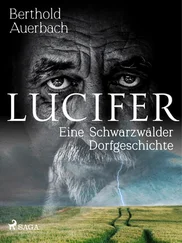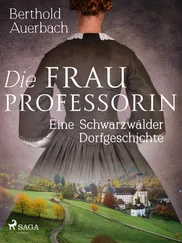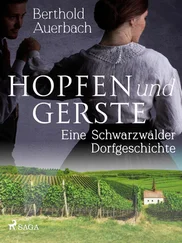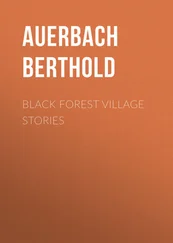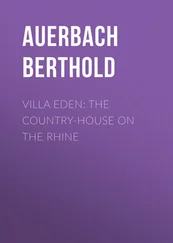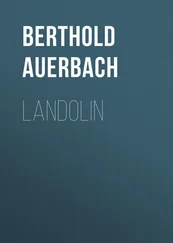Berthold Auerbach - Waldfried - A Novel
Здесь есть возможность читать онлайн «Berthold Auerbach - Waldfried - A Novel» — ознакомительный отрывок электронной книги совершенно бесплатно, а после прочтения отрывка купить полную версию. В некоторых случаях можно слушать аудио, скачать через торрент в формате fb2 и присутствует краткое содержание. ISBN: , Жанр: foreign_antique, foreign_prose, на английском языке. Описание произведения, (предисловие) а так же отзывы посетителей доступны на портале библиотеки ЛибКат.
- Название:Waldfried: A Novel
- Автор:
- Жанр:
- Год:неизвестен
- ISBN:http://www.gutenberg.org/ebooks/32446
- Рейтинг книги:3 / 5. Голосов: 1
-
Избранное:Добавить в избранное
- Отзывы:
-
Ваша оценка:
- 60
- 1
- 2
- 3
- 4
- 5
Waldfried: A Novel: краткое содержание, описание и аннотация
Предлагаем к чтению аннотацию, описание, краткое содержание или предисловие (зависит от того, что написал сам автор книги «Waldfried: A Novel»). Если вы не нашли необходимую информацию о книге — напишите в комментариях, мы постараемся отыскать её.
Waldfried: A Novel — читать онлайн ознакомительный отрывок
Ниже представлен текст книги, разбитый по страницам. Система сохранения места последней прочитанной страницы, позволяет с удобством читать онлайн бесплатно книгу «Waldfried: A Novel», без необходимости каждый раз заново искать на чём Вы остановились. Поставьте закладку, и сможете в любой момент перейти на страницу, на которой закончили чтение.
Интервал:
Закладка:
In our happy family circle we forgot for a little while the feeling of deep humiliation that hung over all, and the doubts that always caused us to ask ourselves, "To whom will we belong?"
It is indeed sad when one is forced to say to himself, "To-morrow you and your country may be handed over to some King."
CHAPTER XIV
Whenever I returned from Parliament, it seemed as if I had left a strange world. Although my labors there were in behalf of those dearest to me, I was too far removed from them to have them constantly in my mind. And for many a morning after my return the force of habit made me wonder why the usual amount of printed matter that had been handed me while at the capital was not forthcoming.
I found the affairs of the village in good order.
That was the only time that I can write about-the time when my wife was still …
I have been gazing out over the mountain and into the dark wood, that I, or rather she, planted, and then I lifted my eyes up to heaven. The stars are shining, and it is said that light from stars that have already perished is still travelling towards us. May the light that was once mine thus flow unto you when I am no longer here. But to proceed.
For three-and-twenty years I filled the office of burgomaster, and was of great use to our parish. Above all things, I built up its credit. To accomplish this I was obliged to be severe and persistent in prosecuting the suit. But now things have so far improved that the people at Basle regret that no one in our village desires to borrow money from them.
The two chief benefits that I have procured for our village are good credit and pure water.
Just as credit is the true measure of economical condition, so is water the measure of physical well-being.
I converted the heath into a woodland. It was twenty-three years ago, and I was the youngest member of the town council; but, aided by my cousin Linker, I induced the people of our parish to plant trees in the old meadow, and to this day every one of our people derives a moderate profit from the little piece of woodland that we now have there. Its value increases from year to year.
My cousin Linker had been a book-keeper in the glass-house down in the valley. He married a daughter of the richest farmer in the village, and became quite a farmer himself.
I learnt a great deal from him. In business matters he was greatly my superior, for he was shrewder, or in other words, more distrustful, than I.
Until about five years ago, we were partners in an extensive lumber business. We built the first large saw-mill in the valley. It had three saws, and all the new appliances, and a part of our business was to saw up logs and beams. I also built a saw-mill, which is conducted on the co-operative system, for the benefit of the villagers.
When the Parliament had determined upon having a fortress erected in our neighborhood, our business friends offered us their congratulations. They well knew that this would require so much lumber as to give rise to a profitable business. And this, I must confess, is a point which I would like to forget. But who, after all, leads a life which is entirely pure, and without being in the slightest spoiled with intercourse with the world.
Cousin Linker conducted a large business in his name and mine. I did not take any active part in the negotiations, although I was responsible for what was done. He would often say, "You are absurdly virtuous. One like you will never get on in the world."
Joseph, my cousin's only son, and of the same age as our Ludwig, had married my daughter Martina, who died shortly after the birth of their first child. Her son Julius was a forester's apprentice. Joseph married again, but he is still faithful to me and mine, while we are quite attached to his second wife and her three daughters.
Joseph is now burgomaster, and I hope he will one day occupy my position as a member of the Parliament. He works zealously for the public good, and has one great advantage that did not exist in my time. For nowadays there are numerous good burgomasters in the neighborhood, and it is therefore easier to carry out desirable measures.
Last winter, Joseph induced the people of Brauneck, the next village, to combine with ours in laying out a road through the common woods, and the wood taken out was worth more than twice the cost of the labor.
Joseph inherited my cousin's shrewd business notions. He caused hundreds of little branches to be gathered up and prepared for Christmas-trees, and at the proper time would send them to the railway, and have them sent down the country. I did my share in building the road, for it passes right by my land, and is of great use to me. I do not think of cutting down any of the lumber. The red pine may stand for another twenty years. I could almost wish that this wood might remain forever, for it is hers!
In the following spring, a gust of wind tore away some of the finest branches, and the first planks made of them were used to construct a coffin.
But I will not anticipate. It was in the third year after our marriage that I returned home one evening with a large load of red-pine saplings. I was sitting on the balcony with my wife, later in the evening, and was telling her that I intended to set the five-year-old shoots down by the stone wall, and that I had therefore chosen hardy plants, in which the root was in proper proportion to the crown, but that it was always difficult to find conscientious workmen, who would look out for one's interest while attending to the matter.
My wife listened patiently while I explained the manner in which the shoots should be planted.
"Let me attend to this work," said she. "It is well that forest-trees do not require the same care as animals, or fruit-trees. Rude nature protects itself. But it will afford me pleasure to tend the shoots with great care."
"But it is fatiguing."
"I know that, but I can do something for the forest that brings us so many blessings."
I gladly consented. And thus we have a fine grove down by the stone wall.
While the children were growing up, my wife knew how to invest the planting of trees with a festive character. Richard and Johanna soon grew tired of it. But Bertha, Ludwig, Martella, and at a later day Ernst, were full of zeal, and had an especial affection for the trees which they had planted with their own hands.
My wife was perfectly familiar with every nook in the woods, and when the new road was laid out she pointed out to Joseph a clear and fresh spring which had remained undisturbed, while we in the village were often poorly supplied with good drinking water. She persuaded him to alter its course so that it would flow towards the village; and now, thanks to her, we have a splendid spring which even in the heat of summer furnishes us with an abundance of cool and pure water.
To this day we call it the Gustava spring.
Every year, at my wife's birthday, it is decorated by the youth of the village.
She seemed to live with the woods that she had planted. Without a trace of sentimentality, I mean exaggerated susceptibility, she rejoiced in the sunshine and the rain, the mists and the snow, because they helped the plants, and this state of mind contributed to the quiet grace and dignity which so well became her.
On Christmas afternoon we could, in our sleighs, ride as far as the wood and the village beyond it.
Martella told us that she, too, had planted thousands of white and red pines, but that there was not a tree that she could call her own.
She called out unto the snow-covered plantation: "Say: Mother."
"Mother," answered the distant echo.
"And now say: Waldfried."
"Waldfried" was the answer. We returned home, happy and light-hearted. Ernst remained with us until New Year's Day, and seemed to have regained his wonted cheerfulness.
Читать дальшеИнтервал:
Закладка:
Похожие книги на «Waldfried: A Novel»
Представляем Вашему вниманию похожие книги на «Waldfried: A Novel» списком для выбора. Мы отобрали схожую по названию и смыслу литературу в надежде предоставить читателям больше вариантов отыскать новые, интересные, ещё непрочитанные произведения.
Обсуждение, отзывы о книге «Waldfried: A Novel» и просто собственные мнения читателей. Оставьте ваши комментарии, напишите, что Вы думаете о произведении, его смысле или главных героях. Укажите что конкретно понравилось, а что нет, и почему Вы так считаете.

